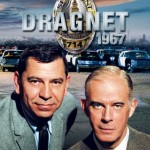When I lived in Tampa many years ago, I had a Sunday school teacher who talked about ‘Someday Isle.’ Terry was vice president of Jay B Rudolph, a fine jewelry retailer that rented space in all the Maas Brothers department stores in Florida. He left them to form his own management consulting firm.
I thought about Terry and ‘Someday Isle’ as I read “Unconditional Excellence: Answering God’s Call to Be Your Professional Best.” Alan M. Ross, who is Founder and CEO of Kingdom Companies here in Atlanta, wrote the book. He’s an entrepreneur and Christian business leader.
Ross writes about the “when I … then I” life, as in: “When I finish this course, then I can spend more time with my family.” “When I close this big account, then I can take some time off.” He compares our life to a spinning top: “I watched in fascination as it began to rotate, smoothly twirling around and around, faster than the eye can follow. My toy kept doing that until it hit an inevitable bump (IB), careened out of control and fell over.”
Friends, you hit an IB when you left your job suddenly. I’ve learned that when some of us hit that bump called unemployment, our lives careen out of control – just like a top. Job loss puts stress on our relationships, our finances, our health and our walk with God. If you are careening out of control, surround yourself with savvy, supportive and spiritual advisors who will be with you, along with Christ, all the way. God never promised us it would be easy; he did promise that he’d always be with us.
If I had the time, I would…
Now back to ‘Someday Isle.’ Think back to when you were working full time and how you would have finished this sentence: “If I had the time, I would …” Now you have the time! Work hard on your job search AND make sure you take the time to do some things that you won’t have time to do when you are back in the rat race. Here are a few suggestions:
- Spend more time with your family, with friends and with God.
- Take care of important, but not necessarily urgent, things life like financial planning, medical check-ups and writing or updating your will.
- Lose some weight, build some muscle and strengthen your cardiovascular system.
- Do projects around the house, spend more time on a hobby or read good books.
- Acquire or improve a skill (e.g., Microsoft Word and Excel); get a credential that will help your career (e.g., Six Sigma Black Belt or Project Management Professional).
The key is discipline. About 20 years ago, a fellow career consultant said a job seeker shouldn’t spend more than six hours a day working on his or her job search. I disagreed with Blanca at the time, but have come more to her way of thinking in the meantime. The caveat I’d put on it is that you have to be ready and willing to work all day and all night to prepare for an interview if necessary. Over the past 23 years, my experience has shown that six hours a day, five days every week would be a significant improvement in the amount of time most people spend looking for a job.
Someday is today! Now is the time! Don’t waste this opportunity! Invest the added time in one of the things I mentioned above – or in some other high payoff activity.
What I’ve always wanted to do is…
Another way to look at ‘Someday Isle’ is much bigger and broader. Maybe it has to do with your career. In my job search in 1992, I worked through a recruiter and received an offer for exactly the position I was looking for – same industry, no relocation, good compensation and benefits. Everything was just right, and yet my wife (now my former wife) noticed that I wasn’t excited about it. She pointed this out to me (I hadn’t really paid attention to my feelings on this), and the next day I withdrew my name. I remember that Ann McKinsey, the recruiter, took it with a lot of class, even though that call cost her about $25K in commissions.
Starting from scratch, I began another job search for the position I had been thinking about for two years. In April 1990, I decided I’d like to be a trainer and consultant after I attended a public seminar on behavioral interviewing. Dr. Robert B. Means was having a great time and I wanted to do what he was doing. About three months later (October 1992) I accepted my first position in the training and performance industry.
Please don’t read this and abandon your logical career target without advice from your board of advisors and plenty of prayerful consideration. My wife gave me some great career advice, but we paid a price for it. Finances were very tight during the three years it took me to work my way back my previous income level. That put a strain on our relationship. We had our first child during this time, and the second came a couple of months after I received a promotion and a raise to my old salary level. Although I would do some things differently in the relationship, I wouldn’t change my career decision.
As you go through your transition, think about these two dimensions of ‘Someday Isle.’ Take care of important, but not necessarily urgent, things you need to do. Think about what you’d really love to do if money were no object and you had the time to pursue your dreams. Maybe now is the time to go exploring.
Whether you change careers on not, as you target companies, evaluate opportunities and negotiate offers, make sure that you will be able to maintain some reasonable balance in your life. Failure to do so may result in attacks on your heart in the form of threats to your relationships, your health and your walk with God.
“Above all else, guard your heart, for it is the wellspring of life.” – Proverbs 4:23
See you Friday at JobSeekers, where someday is today!
Copyright © 2004-2019 / Dave O’Farrell / All Rights Reserved






















